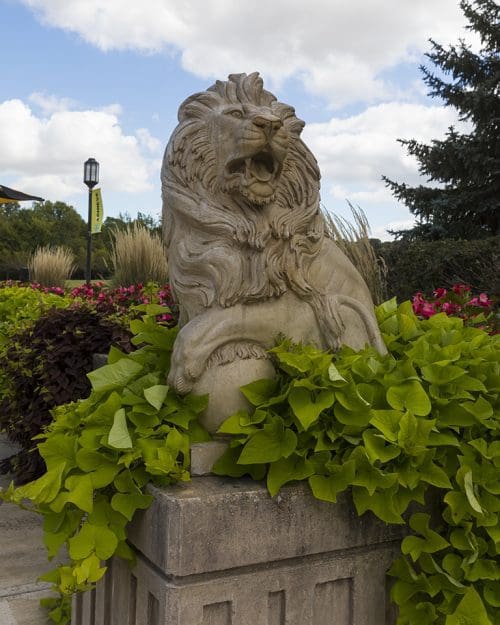Purdue University Northwest researchers awarded federal SPRINT Challenge grant for advanced agriculture technology project

A team of Purdue University Northwest (PNW) College of Technology researchers has been awarded a total of more than $1 million in federal and private funding to develop and test advanced agriculture technology (agTech) solutions. The project will be based in a greenhouse under development at the Digital Crossroad Data Center in Hammond, Ind.
PNW will receive $726,389 through the U.S. Economic Development Administration’s (EDA) Scaling Pandemic Resilience Through Innovation and Technology (SPRINT) Challenge. The university is one of 44 awardees of these grants from a pool of 238 applicants nationwide.
The funds were awarded to Project TRAVERSE: agTech Robotics, Automation and Virtually Employed Resiliently Scaling Enterprises. Project TRAVERSE uses advanced manufacturing technology, robotics and cyber-physical systems to develop and pilot test agTech solutions, like remote planting and harvesting of an array of crops. The project is expected to provide alternative solutions to current labor practices, alleviate labor shortages and improve efficiencies, thus making the U.S. produce industry more competitive with foreign competitors.
“We are excited to be awarded an EDA SPRINT Challenge grant to support this innovative project,” said Niaz Latif, dean of the College of Technology and interim dean of the College of Engineering and Sciences at Purdue Northwest. “This transformative work will create jobs and have a positive economic impact.”
Latif noted the project will receive additional support through an in-kind contribution of $276,000 from Digital Crossroad, operator of the Indiana Data Center in Hammond. Digital Crossroad is building a greenhouse on the Hammond site. Waste heat from the data center will power the greenhouse, creating a sustainable energy source.
PNW will lease the 4,000-square-foot greenhouse from Digital Crossroad. Project TRAVERSE is the first project planned to be housed in the greenhouse. Additional work on the project will take place at the PNW Commercialization and Manufacturing Excellence Center and on the PNW campus.
“Project TRAVERSE and the new Digital Crossroad data center in Hammond are great examples of the transformation happening in Northwest Indiana,” said Thomas P. Dakich, managing member, Digital Crossroad. “Together, we are forming the foundation for a digital economy that will bring additional investment and jobs to the region.”
Positive impact to the community
Project TRAVERSE aims to develop robotics solutions that can be operated remotely to grow crops. The project also would train a high-skilled workforce to manufacture, install, maintain and repair the remote operation technology in U.S. greenhouses.
“Project TRAVERSE will allow the United States to recover from decades of trade imbalance for produce, provide resilient harvests of healthy, nutrient-rich produce to the public during pandemics or other global supply chain disruptions, and offer remote and safe employment to a nimble workforce skilled in remote management of horticulture crops,” stated Mont Handley, entrepreneur in residence and associate director at the PNW Commercialization and Manufacturing Excellence Center, and principal investigator of Project TRAVERSE.
Handley is joined on the project by PNW researchers and faculty members Ge Jin, Mohammad Zahraee, Niaz Latif, George Stefanek and Maged Mikhail, who serve as co-principal investigators; and Amlan Mitra (collaborator) and AJ Moran (consultant).
The SPRINT Challenge was launched last year to harness America’s entrepreneurial potential to address the economic, health and safety risks caused by the coronavirus pandemic through entrepreneurship and innovation. Awardees had to demonstrate alignment with their region’s economic development priorities.
“The SPRINT Challenge builds on EDA’s efforts to work with communities to build strong regional economies,” said Dennis Alvord, acting assistant secretary of Commerce for Economic Development. “Our grantees’ projects are laser-focused on using innovation to help America overcome the economic, health and safety challenges brought on by the pandemic.”